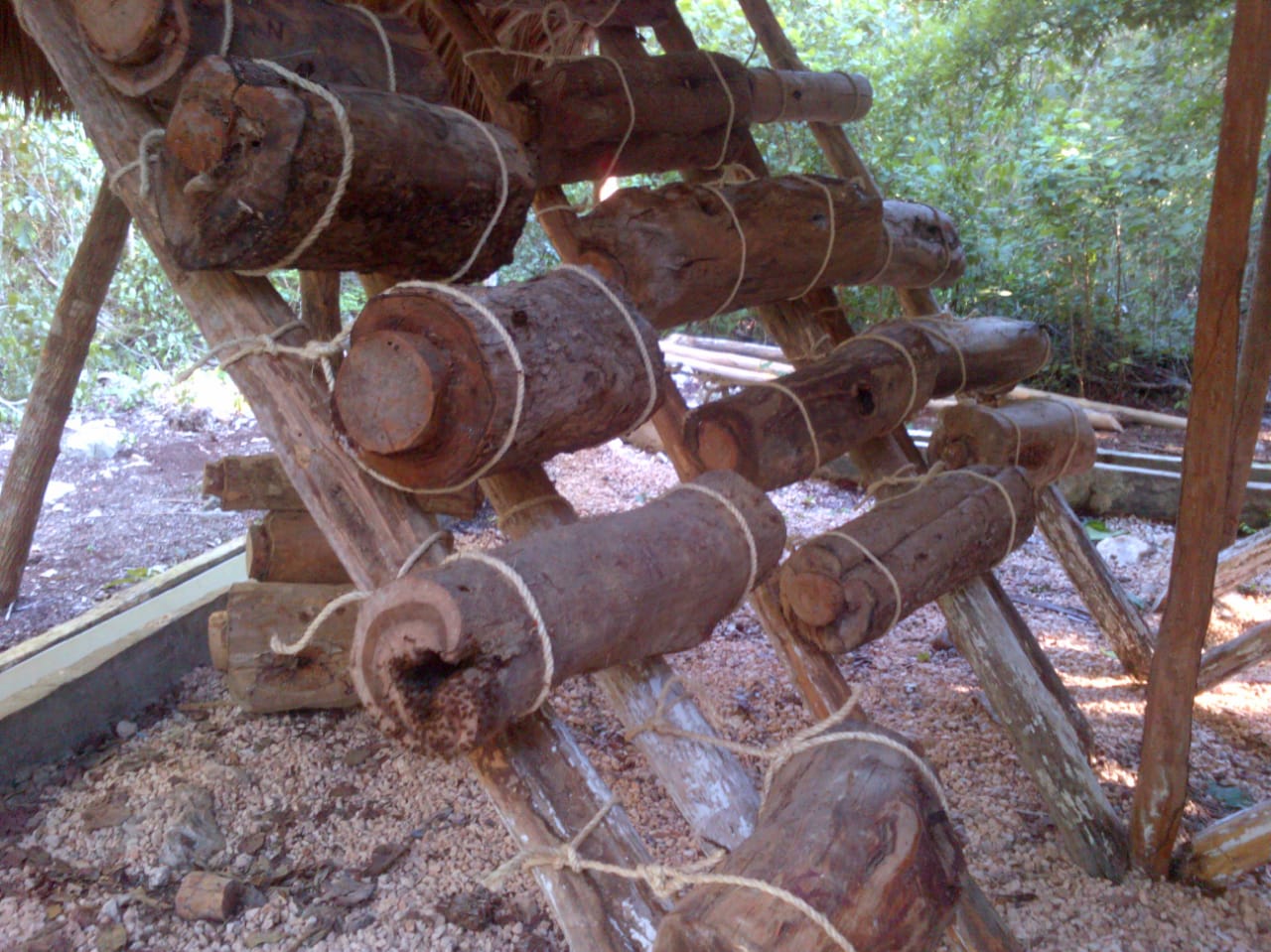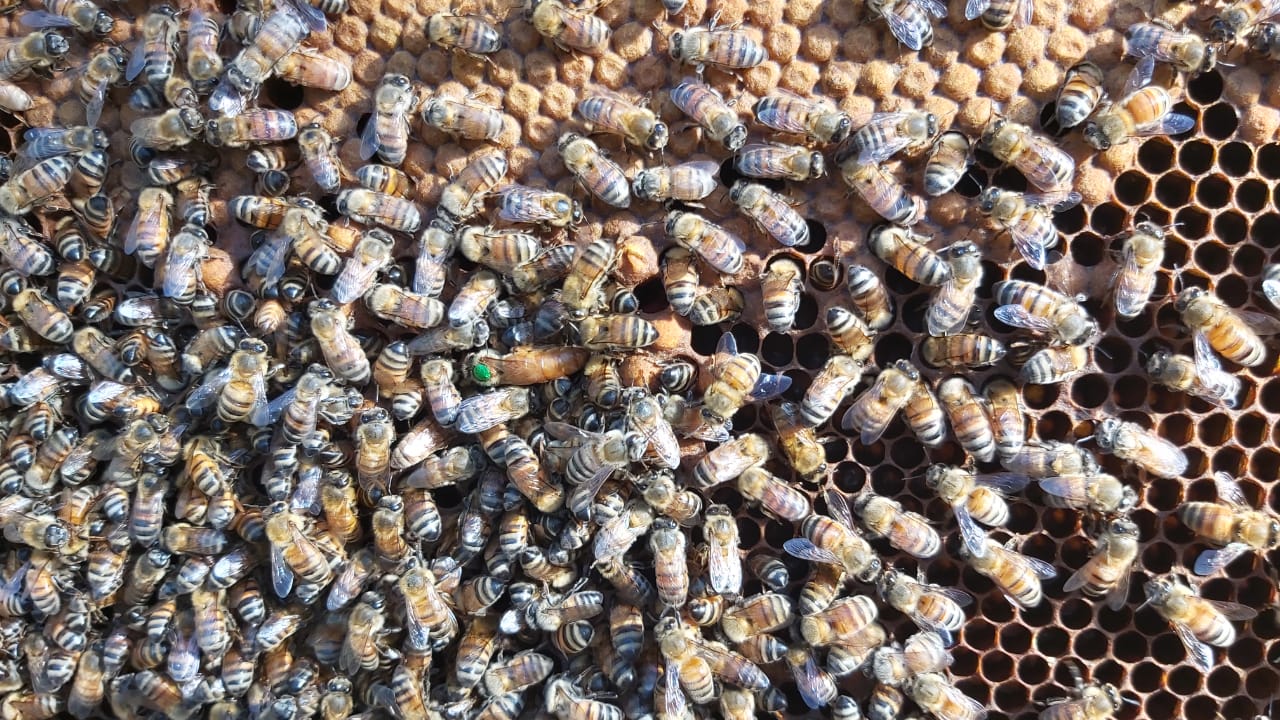
Who are we ?
TIERRA MAYA by Renaud & Céline: our story is simply a story of encounters...
- seasonal restaurateurs in Marseille for 20 years, we have discovered over time our passion for travel, cultures, unusual places, world gastronomy.
- in 2017, we decided to answer the call of the distant land, we sold our family restaurant and left with our three children, to Mexico , without a return ticket.
- at the bend of a desert beach, at the tip of the biosphere of Sian Kaan, we meet by the greatest chance, Michel & Magda .
- this Franco-Mexican couple, beekeepers passionate about Mayan culture, have chosen to adapt the ancestral harvesting process used for melipone bees to apis bees. Thus harvesting a rare, pure honey with an authentic flavor.
- admiring and in love with this honey, we had the crazy idea of creating Tierra Maya in order to make it known in France. It is not a competitor but another terroir, another taste, another story...
- our desire: to continue our travels, our meetings and to offer you other hidden treasures!

A little history...
Honey has been used since the dawn of time by many civilizations, which devoted an important cult to it and considered the bee to be divine.
In Mexico, Ah-Muzencab, god of bees and honey, is one of the most important gods of the Maya culture of the Yucatan Peninsula. He was responsible for the protection of bees and honey. He revered the love and respect the Maya had for these insects that produced their sweetener and medicine.
The Maya used honey for its therapeutic benefits (shamans), during weddings and "honeymoons", religious ceremonies or as a means of payment. Today, we know that the Maya saw it as a sacred and energetic substance. That is why it was a treasure that had to be taken care of and, according to the ancient tradition, it was the noble people who took care of it.
The ancient peoples, Mayas, Aztecs and Toltecs exploited very docile, stingless bees, the so-called "native" melipones, important for the pollination of many native plants.
In 1650, the Spanish conquistadors brought with them the "apis mellifera", or domestic bee, a species that soon conquered all of Mexico.

An ancestral know-how!
In the jungle, bees, like many insects, build their habitat in hollow trunks, whether alive or dead. And that's weather protection.
In Mexico, 3000 years ago, the Mayans had a tradition of using tree trunks to build beehives for honey bees.
It is this ancestral know-how that we still use today for "melipona honey" or "Xunaan Caab". Highly medicinal honey, due to its level of concentration since we only harvest 1kg/hive.
Michel, therefore, 30 years ago, made available trunk hives for apis bees in addition to traditional frame hives. This makes it possible to harvest a more generous honey, less concentrated than that of melipones but of high quality. It is the " Honey of the bees of the Mayan jungle ".
Tree trunks are hollowed out to create cavities that serve as dwellings for bees. Trunk hives are made from local tree trunks such as cedar, pine, sapotier...
The advantages of using trunk hives are that they are durable, natural and easy to handle.
The bees do not feel threatened and we can harvest without smoking; we can speak of harmony between the insect and the beekeeper.

The importance of our work:
All over the world, bees are threatened by human activity, climate change, and ever-increasing competition.
In the jungle, 80% of plant species depend
directly from insect pollination. As a pollinating agent, the bee contributes significantly to this balance, and is therefore the essential link in the survival, evolution and reproduction of native plants.
The Maya called themselves "the inhabitants of the jungle" and lived on the basis of a deep knowledge and a way of life compatible with the conservation of the jungle for generations.
Melipones have been impacted by deforestation and competition with
imported honey bees.
This is why we are beekeepers committed to protecting the natural habitat of our melipones and apis; we regularly plant bee plants and shrubs to complement the work of our bees and thus fight against the threat.
We work closely with around a hundred families of local beekeepers in order to perpetuate the know-how of their culture and make them aware of the importance of this preservation.
